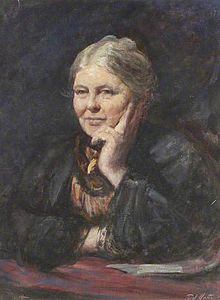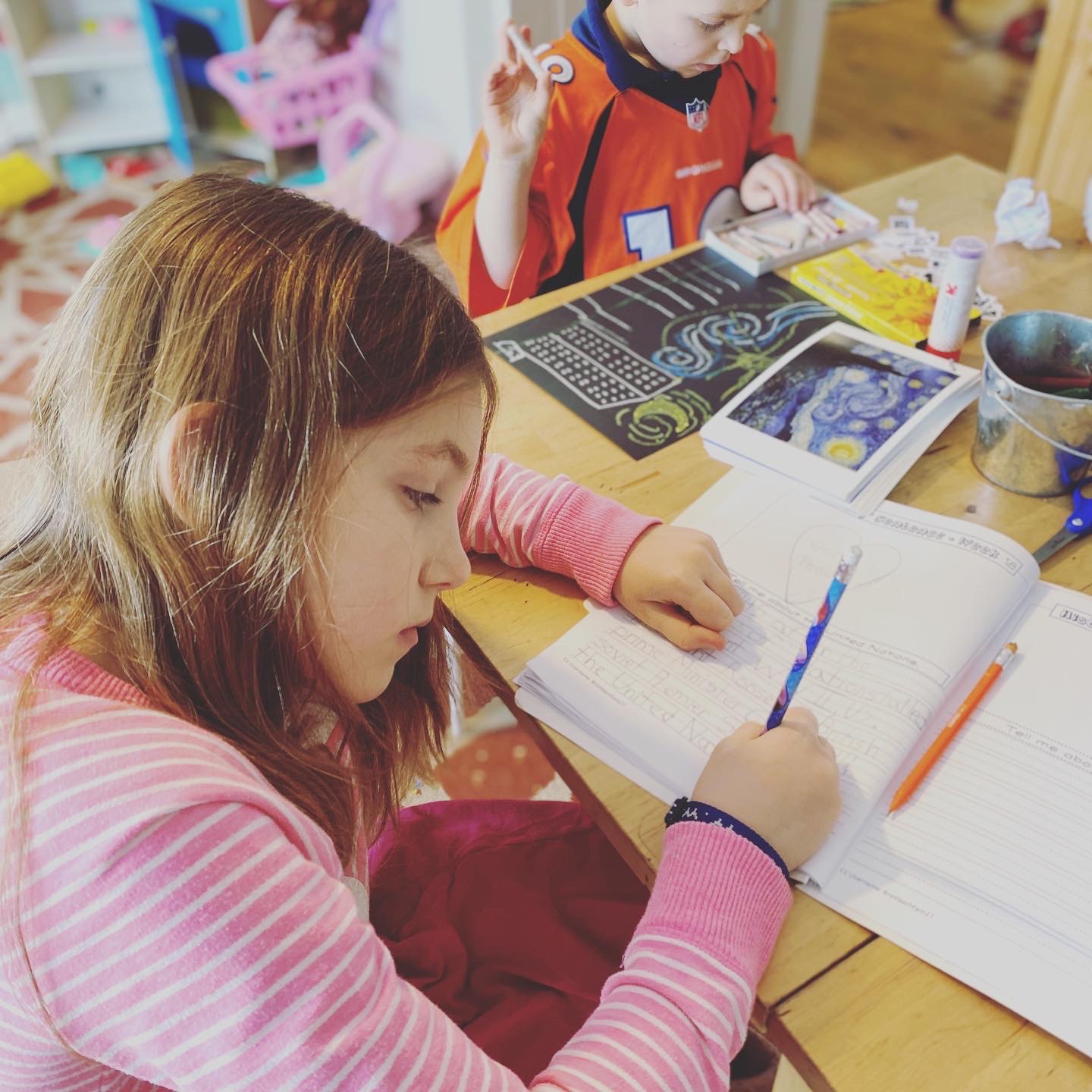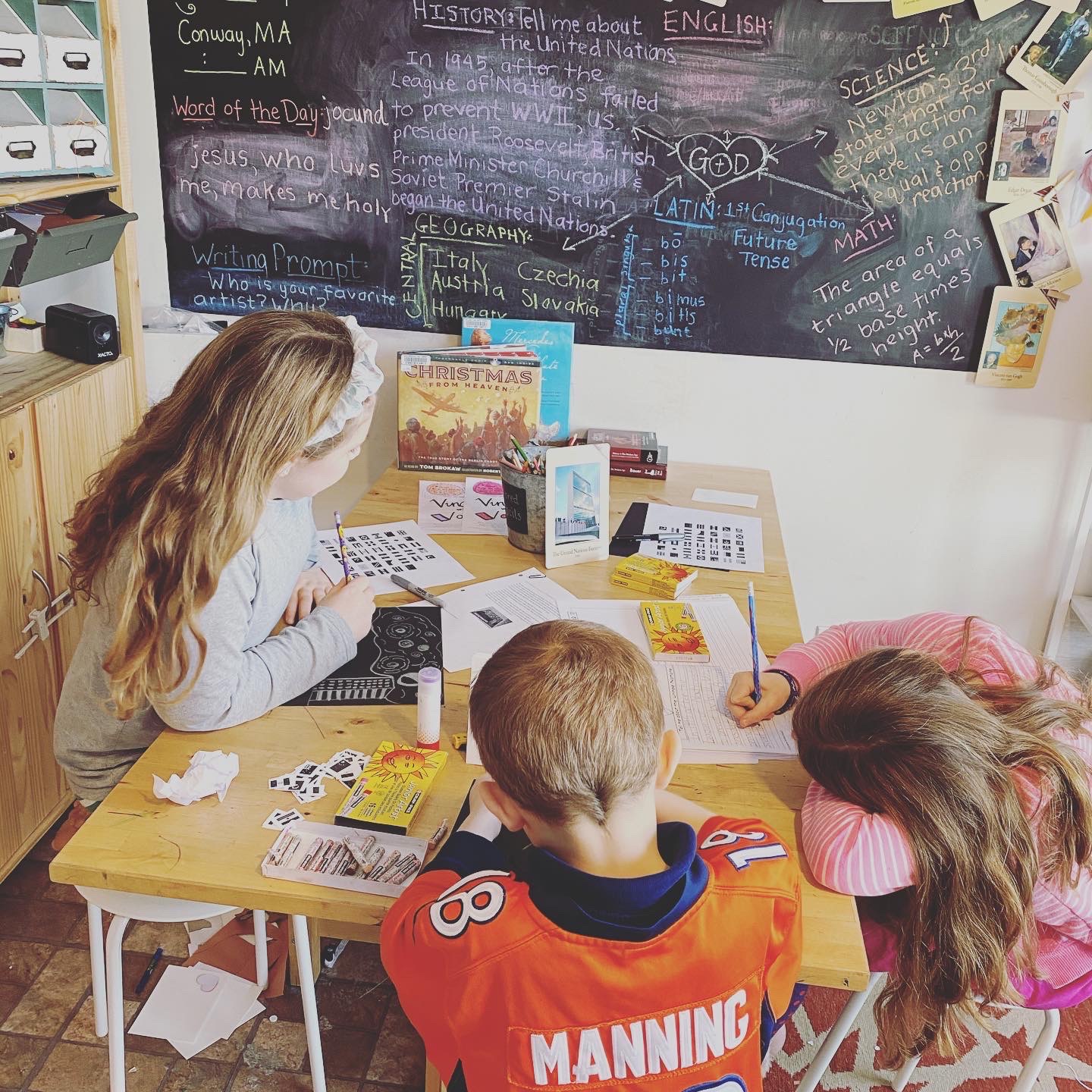CHARLOTTE MASON INSPIRED…

“Education is an atmosphere, a discipline and a life.”
~ Charlotte Mason
Charlotte Mason was a British reformer and educator from 1842- 1923. From the age of eighteen until her death she devoted her whole life to education. At the turn of the century many British schools were molded by her concepts of living books and real life experiences as a foundation for educating. She founded the Parent’s National Education Union (PNEU) in 1887 and founded a teacher training college in Ambleside in 1892, while overseeing a practicing school nearby. She left behind a six-volume set of books covering all aspects of her educational ideas, covering pertinent issues of moral, intellectual and physical development. Charlotte Mason was dissatisfied with the whims of the education of her time. Its progressive practices seemed utilitarian and mechanical. She valued the child as a whole person shaped by the “atmosphere” or surroundings in which the child spends the most of his/her time, that needs to be taught the “discipline” of good habits and character formation, and should be presented with “living” ideas, books and experiences.
In short, a Charlotte Mason approach encourages…
- Use of living books. These“classic” or “great” books are the ones that have endured and made a contribution to our understanding of what it means to be human.
- Personal engagement with what is being taught through oral and / or written narrations, which is a retelling in one’s own words what has just been read (either aloud or silently). Charlotte Mason believed that a child’s love of telling could be used as a foundation for self-education.
- Much time spent outdoors interacting with God’s creation and learning about the world and living organisms firsthand.
- Active involvement in the learning process- not just sitting for long periods of time.
- Time spent becoming familiar with the works of great artists and composers.
- The cultivation of a love of learning through the Bible, various literature, nature, art appreciation, music, handcrafts, arithmetic and logic, foreign languages and good habit formation and character development.


“We allow no separation to grow up between the intellectual and ‘spiritual’ life of children,
but teach them that the Divine Spirit has constant access to their spirits,
and is their Continual Helper in all the interests, duties and joys of life.”
(Towards a Philosophy of Education, Volume 6)
Books for further research:
The Home Education Series, volumes 1-6 By Charlotte Mason
For the Children’s Sake By Susan Schaeffer-Macaulay
Consider This: Charlotte Mason and the Classical Tradition By Karen Glass
A Charlotte Mason Companion: A Personal Reflection on the Gentle Art of Learning ByKaren Andreaola
A Charlotte Mason Education: A Homeschooling How-to Manual By Catherine Levison
Works Cited:
Glass, Karen, and David V. Hicks. Consider This: Charlotte Mason and the Classical Tradition. CreateSpace, 2015.
Mason, Charlotte. Towards A Philosophy of Education. Bottom of the Hill , 2010.
